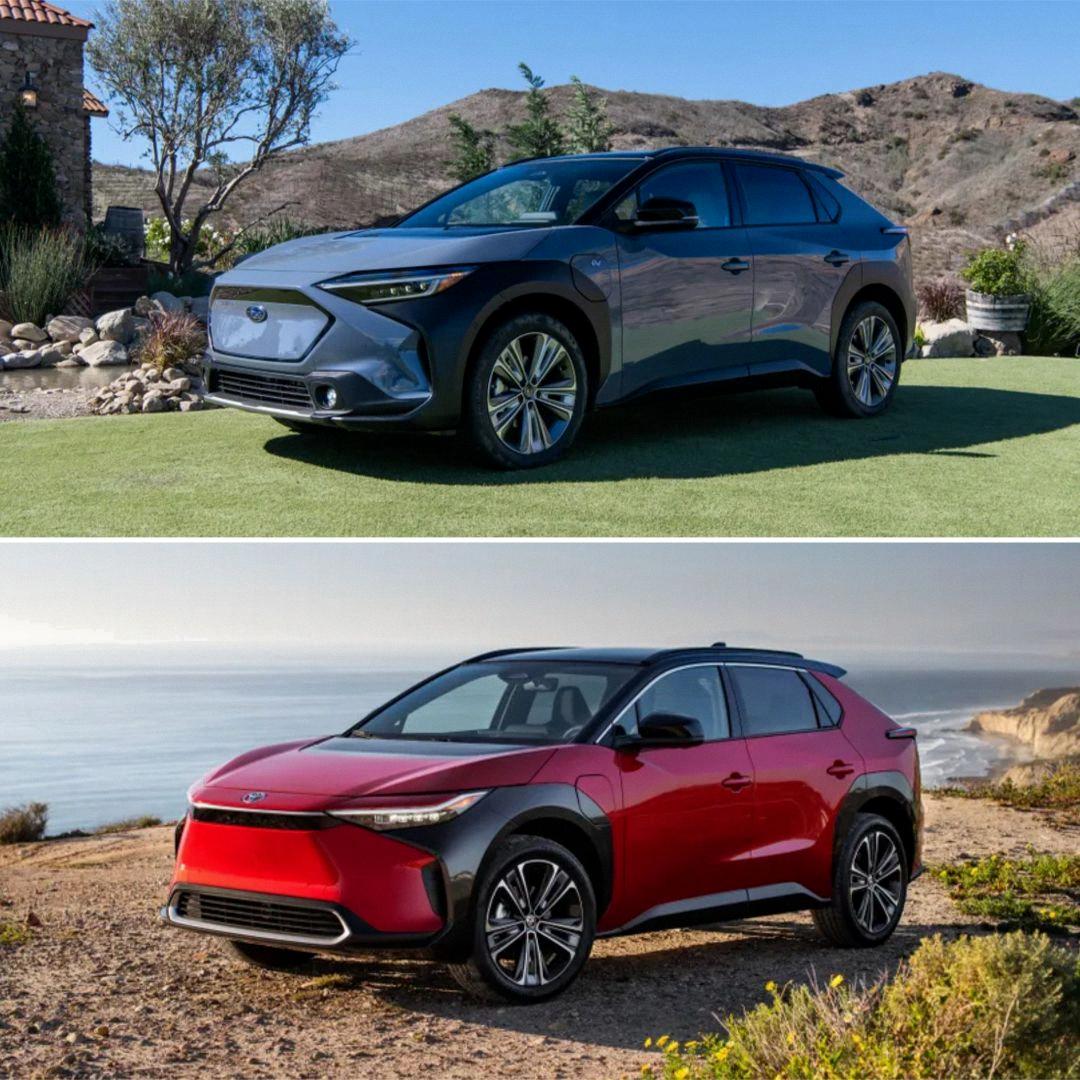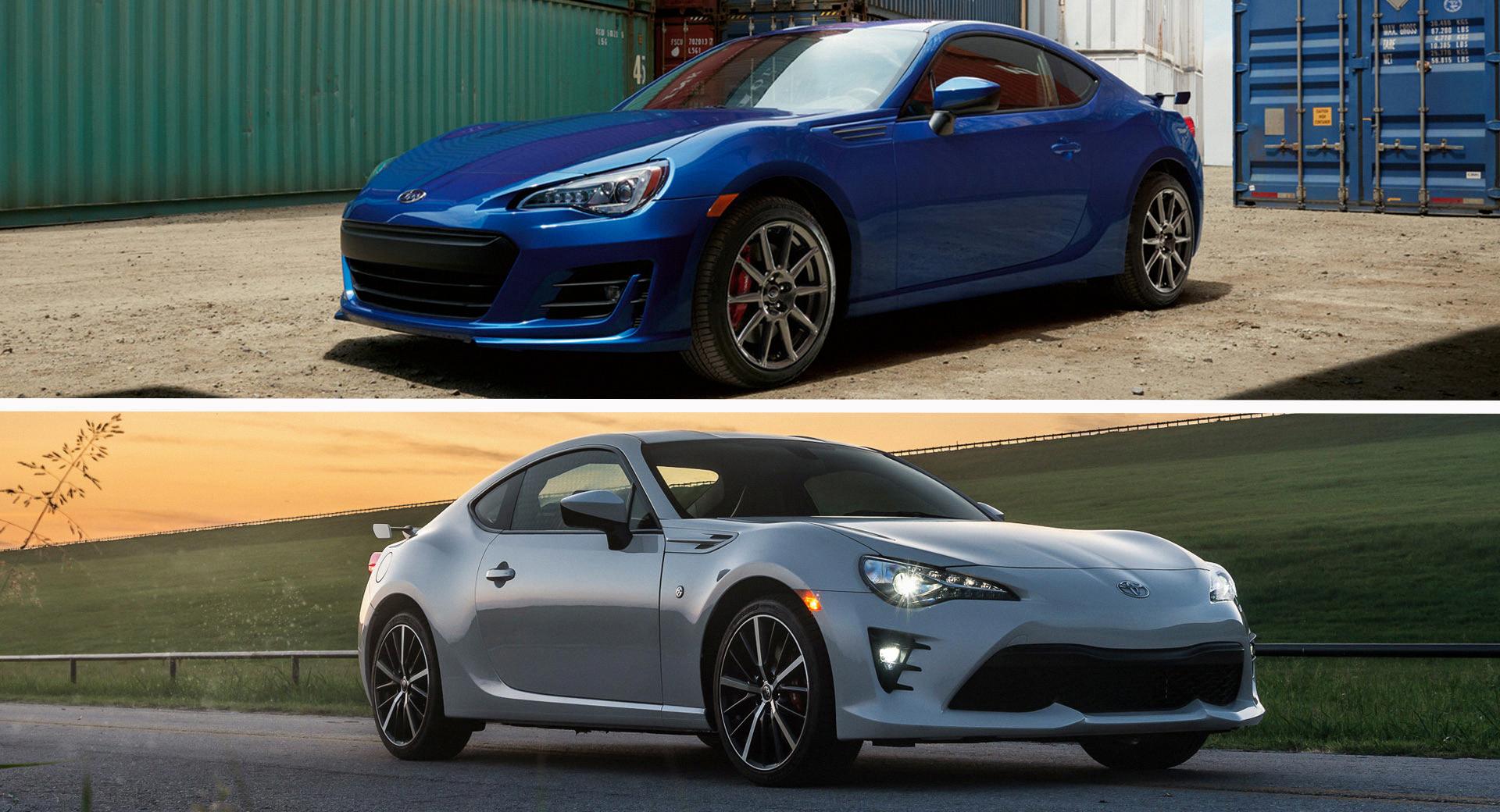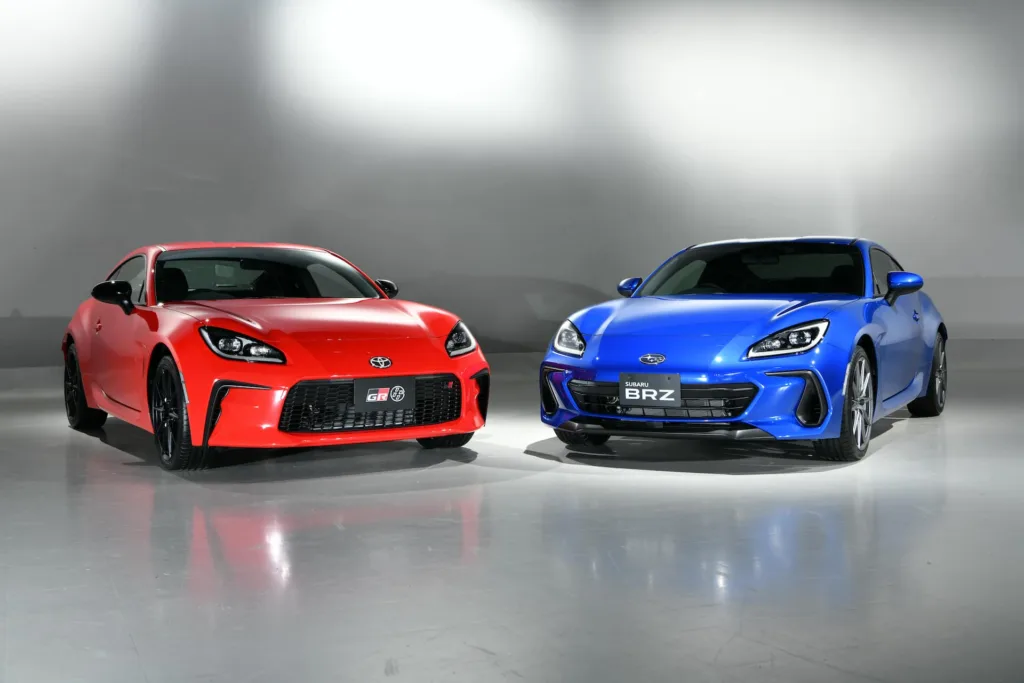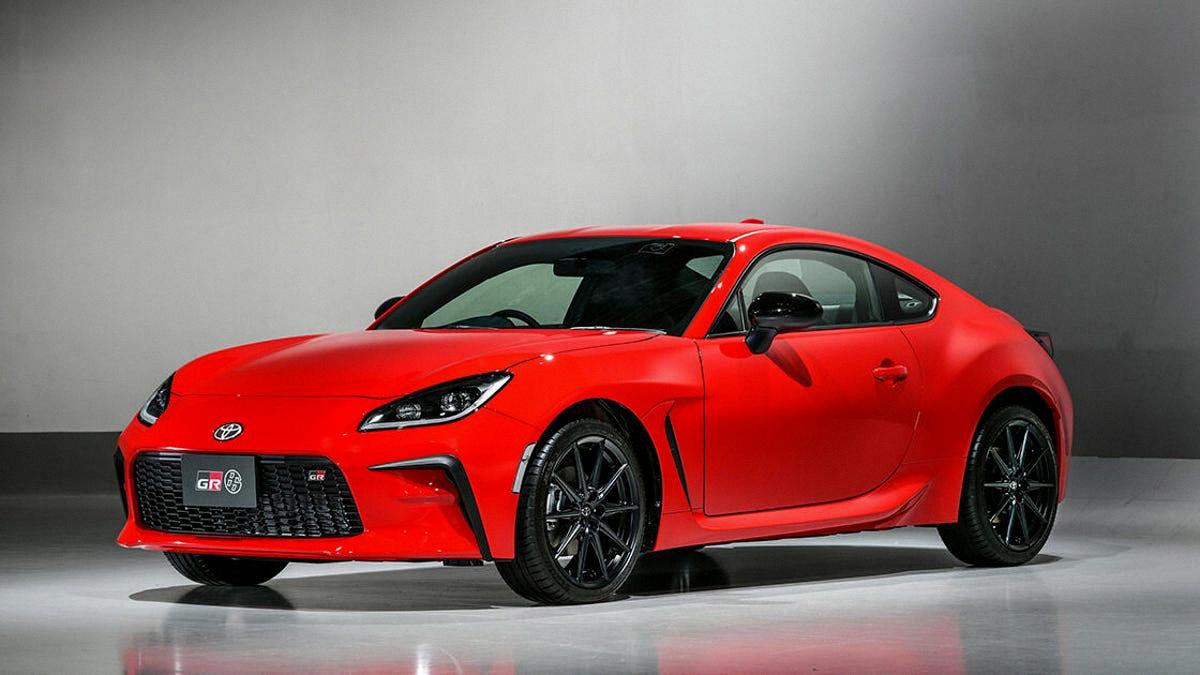Many people are confused about the relationship between Toyota and Subaru. While it’s true that Toyota owns several automobile brands, including Lexus, Scion, Daihatsu, and Hino Motors, it’s not quite accurate to say that Toyota owns Subaru outright.
In fact, Subaru is actually owned by Fuji Heavy Industries, with Toyota holding only a minority stake in the company. The two automakers began their partnership back in 2005, which led to the development of the Toyota 86 and Subaru BRZ sports cars. However, this partnership has since expanded to include the development of technology for autonomous vehicles and the manufacture of newer generations of the 86 and BRZ.
Despite their close collaboration, Subaru remains an independent brand, and Toyota has not taken over the company or created a new brand with Subaru. Nevertheless, the increased partnership between the two companies will bring more all-wheel-drive models to the market, such as the Crosstrek Plug-In Hybrid that was launched last year.
One major benefit of this partnership is that Subaru will be able to expand the use of the Toyota Hybrid System in other Subaru models, such as the Outback, Forester, and Ascent. This will lkely lead to more fuel-efficient and eco-friendly options for Subaru customers.
While Toyota does have a minority stake in Subaru’s parent company, Fuji Heavy Industries, it does not own Subaru outright. The partnership between the two companies has led to the development of exciting new technologies and models, but each brand remains distinct and independent.
Who Owns Subaru?
Subaru is owned by Fuji Heavy Industries, a Japanese company that specializes in the production of vehicles, aircraft, and industrial machinery. Toyota, another Japanese automaker, also has a minority stake in Fuji Heavy Industries and is a partner of Subaru. Toyota owns several other automotive brands including Lexus, Scion, Daihatsu, and Hino Motors. Additionally, Toyota has a stake in Isuzu, another Japanese automaker. Subaru is primarily owned by Fuji Heavy Industries with Toyota having a smaller ownership stake.

Source: caranddriver.com
Are Toyota and Subaru Manufactured by the Same Company?
No, Toyota and Subaru are not made by the same company. Toyota is a Japanese multinational automotive manufacturer that produces a wide range of vehicles, from compact cars to luxury sedans and SUVs. On the other hand, Subaru is a Japanese automobile manufacturer that specializes in producing all-wheel-drive vehicles, including sedans, crossovers, and SUVs. Although both companies collaborate on certain projects, they remain separate entities with distinct manufacturing processes, design philosophies, and brand identities. In fact, Toyota owns a minority stake in Subaru, but the two companies operate independently and maintain their own corporate structures, management teams, and production facilities. Therefore, whle Toyota and Subaru share some similarities, they are not made by the same company.
Are Subaru and Toyota Connected?
Subaru and Toyota are together in a partnership that began in 2005. The partnership has resulted in the development of the Toyota 86 and Subaru BRZ sports cars, and it has recently expanded to include the manufacturing of newer generations of those two cars. Additionally, the companies are working together to develop technology for autonomous vehicles.
Does Subaru Utilize Toyota Engines?
Subaru has been using Toyota engines in some of its models since 2005. In fact, Subaru and Toyota have had a long-standing partnership on engine development and technology sharing. One example of this partnership is the Subaru BRZ and Toyota 86 sports cars, which share the same powertrain. Additionally, the Subaru Crosstrek Hybrid uses a Toyota hybrid system, and the Toyota RAV4 Prime uses a Subaru-sourced motor. This partnership has allowed both companies to share expertise and resources, resulting in more efficient and innovative vehicles.
Comparing Toyota and Subaru Vehicles
When it comes to deciding which is better beween Toyota and Subaru, it ultimately depends on what specific features and factors are most important to you. In terms of overall reliability, Toyota tends to have an edge over Subaru, with a reputation for durable frames and impressive longevity. Toyota also boasts better gas mileage and safety ratings, which are important considerations for many car buyers.
However, it’s worth noting that Subaru tends to excel in certain areas as well. For example, Subaru vehicles are known for their all-wheel drive capabilities, which make them a popular choice for drivers who frequently encounter challenging road conditions. Additionally, Subaru tends to offer a more spacious interior and a more comfortable ride than some Toyota models.
Ultimately, the decision of which is better between Toyota and Subaru will depend on your individual needs and preferences. It’s important to carefully consider factors such as reliability, safety, fuel efficiency, and driving experience when making your decision, and to test drive both brands to get a feel for which one is the best fit for you.

Source: carscoops.com
The Biggest Shareholder of Subaru
As of current data, the biggest shareholder in Subaru is Toyota Motor Corporation, holding approximately 20.02% of total shares. The Master Trust Bank of Japan, Ltd. (trust account) follows as the second-largest shareholder with 14.90% of total shares held, and Custody Bank of Japan, Ltd. (trust account) holds the third-largest number of shares at 6.28%. Other top shareholders include BNYM TREATY DTT 15, which holds 1.42% of total shares. It is worth noting that these figures are subject to change over time as shareholders buy and sell their holdings.
Comparing Reliability of Subaru and Toyota
When it comes to reliability, Toyota is generally considered to be more dependable than Subaru. Toyota has built a reputation for producing vehicles that are extremely reliable and long-lasting. In fact, Toyota was the first car manufacturer to receive the Triple-A rating for dependability, which is the highest rating possible and a testament to the company’s commitment to quality and reliability.
While Subaru is also known for producing reliable vehicles, they don’t quite match up to Toyota in terms of overall dependability. However, it’s important to note that Subaru has made significant strides in recent years to improve its reliability and build quality. In fact, several of Subaru’s models have received high marks in reliability surveys and rankings.
Ultimately, when it comes to choosing between Toyota and Subaru, reliability is just one factor to consider. Other factors such as performance, features, and price should also be taken into account. That being said, if reliability is a top priority, Toyota is definitely the safer bet.
The Similarities Between Subaru and Toyota Automobiles
Subaru does not copy Toyota. While Toyota and Subaru do have a partnership, Subaru is an independent car manufacturer that has its own unique design and engineering philosophy. In fact, the partnership betwen Toyota and Subaru is a collaboration that combines the strengths of both companies to create a unique sports car. The Scion FR-S/Toyota 86/Subaru BRZ is a result of this collaboration, with Subaru producing the car and developing the engine, while Toyota contributed to the car’s design and marketing. So, it’s not a matter of Subaru copying Toyota, but rather a strategic partnership that benefits both companies.
Differences Between Toyota and Subaru
Toyota and Subaru are both highly respected car brands that offer a range of vehicles with different features and capabilities. While both brands share some similarities, there are some key differences betwen them.
One of the most significant differences between Toyota and Subaru is their focus on different aspects of car design. Toyota has traditionally focused on producing reliable and efficient vehicles, with a particular emphasis on hybrid and electric cars. Subaru, on the other hand, has a reputation for building cars that are safe, durable, and performance-driven.
Another key difference between the two brands is their approach to all-wheel drive. While Toyota offers all-wheel drive on some of its vehicles, it is not a central focus of the brand. Subaru, on the other hand, has built its reputation on its symmetrical all-wheel drive system, which is standard on all its models. This system provides excellent traction and stability on all types of terrain, making Subaru cars a popular choice for drivers in areas with harsh weather conditions.
In terms of pricing, Toyota vehicles tend to be more affordable than their Subaru counterparts. However, Subaru offers better value for money in terms of features and durability. Many Subaru models come with advanced safety features, such as EyeSight driver assist technology, which is not available on most Toyota models.
Overall, Toyota and Subaru are both excellent car brands that offer different benefits to drivers. Toyota is a great choice for those looking for a reliable and efficient car, while Subaru excels in areas such as safety, durability, and all-wheel drive performance.

Are Subaru Parts Compatible with Toyota Parts?
Subarus do use Toyota parts. In fact, Toyota owns a 20% stake in Subaru’s parent company, wich has resulted in a partnership between the two automakers. As a result of this partnership, Subaru gains access to various raw materials and supplier networks of Toyota, which includes steel and other components used in the manufacture of Subaru vehicles. Additionally, some Subaru models, such as the BRZ, share components with Toyota’s 86 sports car, further highlighting the collaboration between the two companies. Therefore, it is safe to say that Toyota’s involvement in Subaru has had a significant impact on the components and materials used in Subaru vehicles.
Comparing Subaru and Toyota Engines
Subaru and Toyota share the same engine in their 2022 models of the BRZ and GR 86, respectively. Both vehicles feature a 2.4-liter horizontally opposed four-cylinder engine, also known as a flat-four engine, which produces 228 horsepower and 184 lb-ft of torque. The engine is also paired with a six-speed manual or automatic transmission. This partnership between Subaru and Toyota has allowed for the integration of their engineering and design expertise to create two sports cars that share the same powertrain while remaining unique in their own way.
The Lifespan of a Subaru
Subarus are known for thir durability and longevity on the road. Many Subaru drivers report that their cars last about 200,000 miles before major repairs are needed, but this is not a hard limit. With proper maintenance and ideal conditions, Subarus can last up to 300,000 miles or more. It’s important to note that regular maintenance and care are key in keeping your Subaru running smoothly and lasting for a long time. This includes things like regular oil changes, tire rotations, and keeping up with recommended service intervals. Additionally, driving habits and environmental factors can also impact the lifespan of a Subaru. However, overall, Subarus are known for their reliability and have a reputation for lasting well beyond 200,000 miles.
What is the Meaning of Subaru in Japan?
Subaru is a Japanese word that signifies “unite.” It is also a term used to identify a cluster of six stars, whch have been referred to as the Pleiades in Greek mythology. The Pleiades is a group of stars located in the Taurus constellation. According to Greek mythology, the daughters of Atlas were transformed into these stars. In Japan, the meaning of Subaru is deeply ingrained in the culture, and it symbolizes unity and coming together as one. This is reflected in the company’s logo, which features six stars, representing the six companies that came together to form Subaru. The word “Subaru” also evokes a sense of reliability, durability, and performance, which are qualities the company strives to embody in its automobiles. Subaru is a word that holds great significance in Japan, representing both unity and excellence.

Source: cnet.com
The Reliability of Subaru Engines
Subaru engines are generally considered reliable. Subaru has a reputation for producing durable and long-lasting vehicles, and their engines are no exception. Many Subaru owners report driving their vehicles well past 200,000 miles without experiencing major engine problems. The key to the reliability of Subaru engines is their design and construction. Subaru engines are built with high-quality materials, and they are engineered to withstand the rigors of daily driving as well as more demanding conditions, such as off-road adventures. Additionally, Subaru is knon for incorporating advanced technologies into their engines, such as their trademarked Boxer engine design which helps to improve stability and handling, while also reducing vibration and noise. Regular maintenance, such as oil changes and tune-ups, is still necessary to keep any engine running smoothly, but overall Subaru engines are considered to be reliable and well-suited for a wide range of driving conditions.
Conclusion
In conclusion, Toyota does not own Subaru, but rather has a minority stake in the company’s parent company, Fuji Heavy Industries. The two automakers have had a partnership since 2005, resulting in the development of the Toyota 86 and Subaru BRZ sports cars. This partnership has recently expanded, with both companies developing technology for autonomous vehicles and manufacturing newer generations of the 86 and BRZ. Additionally, Subaru will be able to expand their use of Toyota’s hybrid system in other models. Despite this increased collaboration, both companies remain distinct entities, with their own unique brand identities and management structures.
